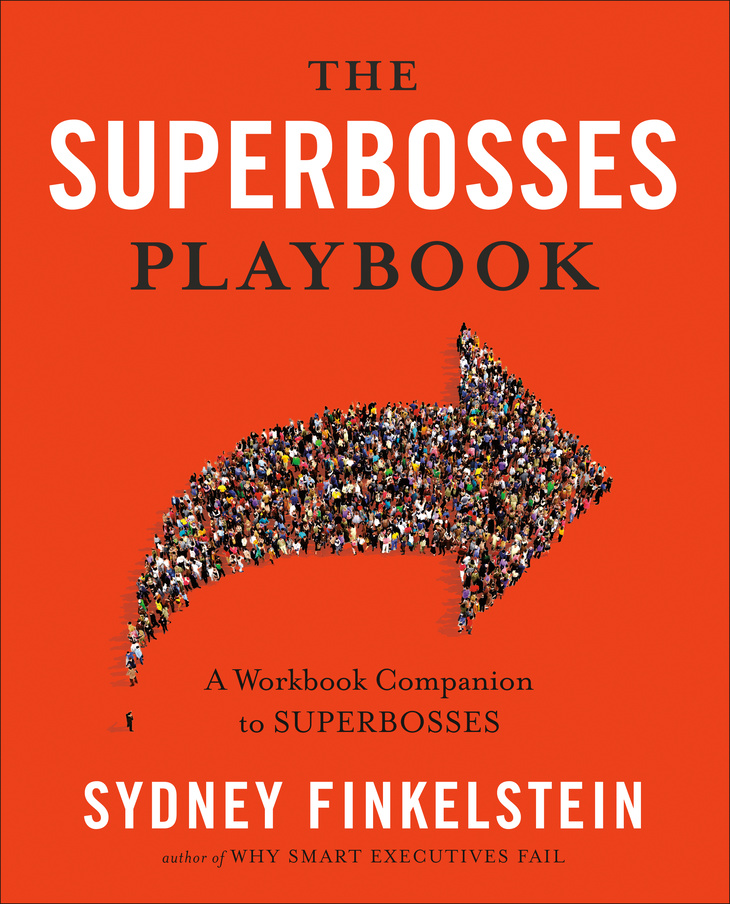Hiring unusual talent is not for the faint of heart. Ordinary bosses worry about being upstaged. Not superbosses. They’re so confident— even a touch arrogant— that they don’t seriously think anyone can outshine them. There’s that famous joke about Larry Ellison: “What’s the difference between God and Larry Ellison? God knows he isn’t Larry Ellison” (see Superbosses, pp. 48– 50).
Be honest with yourself. Are you willing to bring on people who will work at your level, challenge you, and from time to time even outshine you? Or are you a typical “bossy boss” who habitually clusters less talented people around you so that you can look good in comparison? It’s easy to shake your head and tell yourself, “No, I’m not a bossy boss.” But although such denial might make you feel better in the short term, it won’t help you become a better boss. When you’re the one dealing with a star subordinate, how would you really handle it?
Step One: Reflect on Scenarios
To gain more insight, reflect on the following scenarios. For each one, the “right” answer is obvious. But the real question is: if it were really you in the scenario, what would you actually do?
Scenario #1
You’re in a large meeting. Senior leadership at your company is present, as well as two or three of your reports. At one point in the meeting, someone poses a critical question that nobody in the room can answer. Your boss glances at you for ideas. You shake your head— you’ve got nothing. Then one of your reports raises her hand. In just a few sentences, she comes up with an answer that is unexpectedly sharp and quite promising.
Do you:
(a) run to the bathroom because you’re so embarrassed; (b) shoot your report’s idea down; (c) try to put forward an even more impressive idea; (d) publicly praise your report’s idea and then reward her in private for speaking up?
Scenario #2
You’re in a regular thirty-minute status meeting with your ten-person team. For the first twenty minutes, the meeting proceeds uneventfully. Then Rahul, a twenty-two-year-old recent college grad who joined the team just two weeks earlier, tentatively raises his hand. In just a few sentences, and with unusual eloquence, he challenges a key assumption that informs the project the team is working on. If his argument is correct, the team will have to make significant changes to its approach.
Do you:
(a) admonish Rahul for saying something so stupid; (b) brush him off by saying, “Oh, yeah, we’ve thought about that”; (c) look at your watch, announce that it’s getting late, and end the meeting; (d) listen carefully, acknowledge that Rahul might be on to something, thank him for bringing it up, and make plans to look into the point further and make necessary adjustments?
Scenario #3
You’re in your office when you hear a knock on your door. Sarah and Amal, two analysts who have been on your team for only a couple of months, ask if they can speak with you for a moment with the door closed. During the conversation, they sharply criticize a specific work process that has little to do with their jobs but that they’ve observed and feel could be improved. Although they don’t realize it, you personally introduced this process a few years earlier, and from what you can tell, it has worked wonderfully. But from their point of view, the process is cumbersome and dated— it “makes no sense.” They lay out in detail another way of organizing the process using the latest technology.
Do you:
(a) politely explain why you introduced the process and why it needs to stay in place; (b) gruffly tell them to focus on their damn jobs and not worry about “the bigger picture”; (c) tell them you’ll look into it, but then take no action; (d) ask others if they also find the work process cumbersome, and if they do, put Sarah and Amal in charge of researching and potentially implementing their proposal, while also crediting them publicly with pointing out this problem?
Step Two: Evaluate Potential Challenges to Overcome
If you have bossy boss tendencies, here is an opportunity to change.
• Rethink your need for validation as a leader.
• Spend time investigating what lurks behind that need.
• Ask yourself what you fear will happen if your reports shine.
• Question whether and how your need for validation has been holding you and your team back.
• Find ways to buck up your ego, either at work or in your personal life.
• Put yourself in a position to hire and work with the very best.
Start by reminding yourself about your unique capabilities and experience. Every day for the next month, take five minutes to write down one aspect of what makes you special or one “win” in your professional or personal life. You can use the space provided on the next page. Add to the list every day.
Step Three: Take Action
Use your self-confidence to become a better boss. During the next week, try these actionable steps:
• On at least three occasions, deflect praise from a colleague or boss onto one of your reports.
• Think of meetings you lead or presentations you give. This week, assign to one or more of your direct reports a bigger role than you usually do in running a meeting or delivering a presentation. Let them play a starring role in a new business pitch or an internal presentation, or at least do more than they ordinarily might. (See also Exercise #6– 3, “The Hands-on Delegator.”)
• Each day during the coming week, make a point of publicly soliciting your subordinates’ opinions at least once during the course of the day. Truly listen to what they are trying to say and consider the value of their opinions. (See also Exercise #6– 4, “Learning from Below.”)
• When you find yourself disagreeing with more junior colleagues, resist the urge to dictate a solution right away. Instead, practice listening first to their concerns. You might still feel that you’re right, and you might still end up dictating a solution. But make a process out of solving problems, one that includes acknowledging your reports and their points of view.
Takeaways
• To behave more like a superboss, it helps to acknowledge all the good things that you bring to the job. Self-confidence is good.
• At the same time, you’ve got to learn to make room for other people on your team. When you are confident in your own abilities, it’s easier to do that.
• Superbosses are unafraid to hire people who are “better” than they are. What about you? It’s not easy to admit you’re a bossy boss. But doing so can help open the way to quicker progress.
• When you have a great team, you can’t help but be more successful yourself. And that’s the bottom line.

Excerpted from The Superbosses Playbook: A Workbook Companion to SUPERBOSSES by Sydney Finkelstein with permission of Portfolio, an imprint of Penguin Publishing Group, a division of Penguin Random House LLC. Copyright © Sydney Finkelstein, 2019. Also available in paperback.
Follow us here and subscribe here for all the latest news on how you can keep Thriving.
Stay up to date or catch-up on all our podcasts with Arianna Huffington here.


